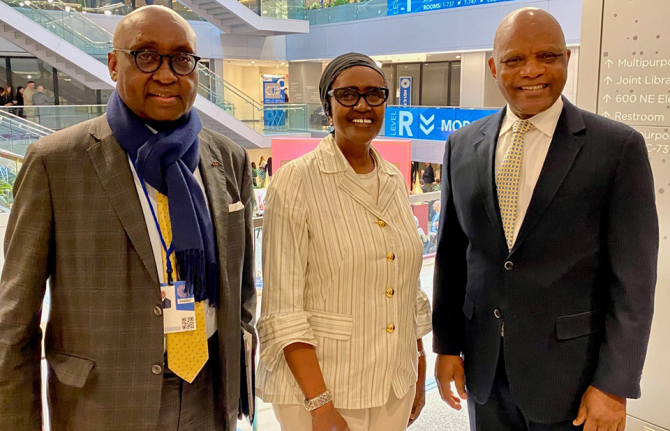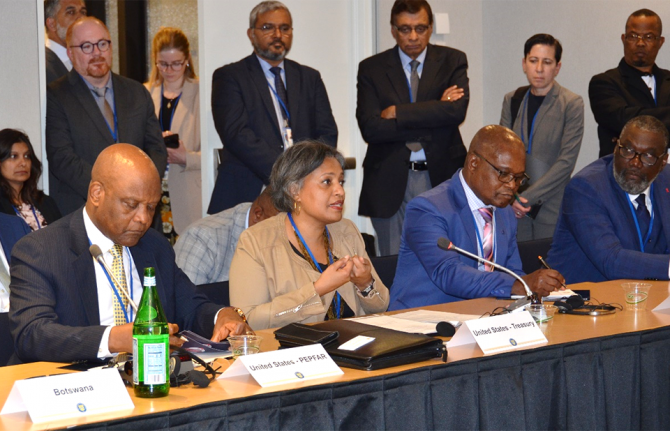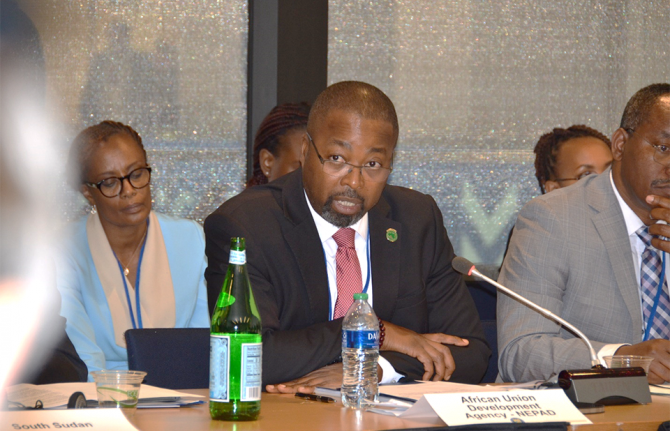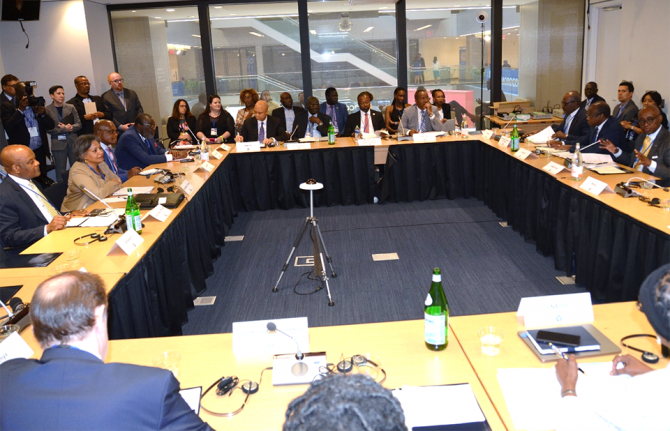




Feature Story
African ministers of finance join forces to highlight the importance of financial sustainability in the response to HIV
01 May 2023
01 May 2023 01 May 2023Although great strides have been made in tackling HIV in recent years, Africa remains the continent most affected by HIV and progress towards ending AIDS is stalling. The COVID-19 pandemic, global inflation, growing debt levels, and a retreat from overseas development assistance by some donors are hampering Africa’s efforts to ramp up national HIV responses and are jeopardizing broader outcomes for health, social development and economic growth.
UNAIDS estimates that globally, low and middle-income countries will need investments of US$ 29 billion annually to meet targets of ending AIDS as a public health threat by 2030. In 2021, only US$ 21.4 billion was spent on HIV responses low and middle-income countries.
In order to advance urgent and collaborative action to keep HIV high on political agendas and re-prioritize funding for health and HIV, African ministers of finance joined international partners on the sidelines of the World Bank / International Monetary Fund Spring meetings in Washington DC to explore ways to ensure financial sustainability of domestic HIV responses.
During the event, Ministers of Finance and senior representatives from Angola, Burundi, Democratic Republic of the Congo, Eswatini, Kenya, Lesotho, Nigeria, Mozambique, Rwanda, South Sudan, Tanzania and Uganda, and the Minister of Health of Côte d’Ivoire came together with global partners, including PEPFAR, the US Department of the Treasury, UNAIDS and the Global Fund to Fight AIDS, TB and Malaria.
Participants explored co-creating country-led paths towards the sustainability of the HIV response within broader health financing challenges. In the dialogue with Ministers of Finance, several issues were explored, among those, the need to overcome financing bottlenecks for HIV, expand local production of medicines and health technologies, or strengthen health systems and pandemics preparedness, while considering the relevance of developing joint HIV financial sustainability road-maps.
The event, ‘Investing in Sustainable HIV Responses for Broader Health Security and Economic Resilience in Africa’, was moderated by Donald Kaberuka, Chair of the Board of the Global Fund to Fight AIDS, Tuberculosis, and Malaria and the African Union’s High Representative for Financing, the Peace Fund and COVID-19 response. The event included remarks by;
- Alexia Latortue, Assistant Secretary for International Trade and Development, US Department of the Treasury,
- Dr. John N. Nkengasong, US Global AIDS Coordinator and Special Representative for Global Health Diplomacy, PEPFAR, US Department of State,
- Winnie Byanyima, Executive Director, UNAIDS, and
- Symerre Grey Johnson, Head of Regional Integration Infrastructure and Trade, New Partnership for Africa's Development (AU/NEPAD)
Participants also reflected on the finding of the recently released report by the Economist Impact, supported by UNAIDS, titled A Triple Dividend: The health, social and economic gains from financing the HIV response in Africa. The report provided evidence showing that fully financing the HIV response to get back on track to achieve the 2030 goals will produce substantial health, social and economic gains in 13 countries in sub-Saharan Africa.
This meeting was the first in-person discussion among ministers of finance and international partners around the sustainability of the HIV response held since COVID-19 travel restrictions were lifted. The meeting will be followed by a series of regional and in-country engagements to advance the financial, political and programmatic sustainability of the HIV response in preparation for the African Union’s Assembly of Heads of State Extraordinary Session on Ending AIDS by 2030.



